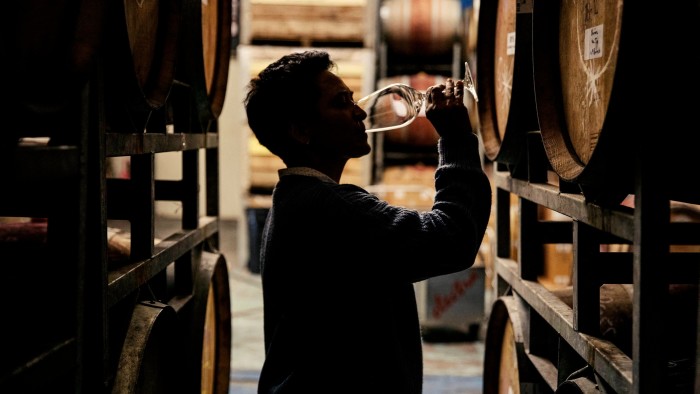South Africa’s vineyards, known for their Pinotage and Chenin Blanc grapes, are bracing for a hit after 30 per cent US tariffs left them at a sharp disadvantage to their international winemaking rivals.
Africa’s largest economy exports more than $500mn a year of wine, a staple of its agricultural sector, and the US was its fourth-largest market last year after the UK, Germany and the Netherlands.
The 30 per cent tariff on South Africa, which went into effect on Thursday, exceeds the 15 per cent levied on France, Italy and Spain, as well as the 10 per cent on Australia, Argentina and Chile.
The tariffs could have an outsize impact on an industry employing 270,000 people in a country where one in three cannot find a job.
“The US is also the biggest consumer market for wine globally, so many South African producers have put a considerable amount of effort into building up relationships there,” said Rico Basson, chief executive of the industry body South Africa Wine.
About 200 of South Africa’s 512 wine estates export to the US, many of which would be “highly exposed” to the tariffs, Basson said.
 The tariffs could seriously affect an industry employing 270,000 people in a country where one in three cannot find a job © Marco Longari/AFP/Getty Images
The tariffs could seriously affect an industry employing 270,000 people in a country where one in three cannot find a job © Marco Longari/AFP/Getty Images
De Wet Viljoen, chief winemaker at the Wildekrans estate, about an hour south-east of Cape Town, said the US was his largest export market at about 20 per cent of sales.
“Our American agents, who stockpiled wine ahead of the tariffs, haven’t placed any new orders either, so there’s a lot of uncertainty,” Viljoen said, adding that the only option was to find other markets in Europe, Asia and in Africa.
US President Donald Trump has repeatedly attacked South Africa over the discredited claim that a “genocide” is happening against white people and over what he has called the country’s “bad policies”, such as its black empowerment affirmative action schemes.
South Africa had sought unsuccessfully to secure relief from the new US levies, which are the highest in sub-Saharan Africa.
The country’s trade ministry said it did not receive a response to an offer made weeks ago to invest more than $3bn into the US mining and metals industry and import $12bn worth of liquefied natural gas.
President Cyril Ramaphosa’s office said on Thursday he spoke to Trump this week to try to advance trade negotiations between the pair, though nothing tangible has emerged.
Johan Schwartz, chief executive of Mountain Ridge, a cellar east of Cape Town that sells about 100,000 litres of wine to the US every year, said the tariff had caused havoc for American buyers.
“We’ve already seen American importers cancelling or pausing orders to see how this plays out. So wine producers not just in South Africa, but also Italy, Spain and France, are looking to divert that supply into other markets in Europe and elsewhere,” he said.
Mountain Ridge will cope, he said, in part because it sells wine in bulk, and has been developing closer ties with other countries, such as Russia and other African nations. “Covid, at least, taught us to be agile,” he said.
The government has announced it will set up a “support desk” to advise exporters on finding new markets, and plans to announce a financial support package in the next few days. Critics say this is a drop in the ocean in a country for which the US accounts for 7.5 per cent of exports.
 The levies will affect even premium and award-winning wines © Waldo Swiegers/Bloomberg
The levies will affect even premium and award-winning wines © Waldo Swiegers/Bloomberg
GT Ferreira, a banker who owns the Stellenbosch-based Tokara, disputed the idea that winemakers would be able to swiftly pivot to selling elsewhere.
“The government is talking about finding new markets, but if it was so easy, we’d have already done that a long time ago,” he said. “All we really can do is tell our marketing guys to try harder.”
Even for premium South African wines, which industry participants say have more of a cushion, the tariffs will have an impact.
“South Africa’s wine industry wasn’t that profitable even before this, so the tariffs are going to be damaging to all exporters who sell wine to the US,” said Ferreira, whose brand landed two gold medals in last month’s Decanter wine awards in London.
“About half of all wine made in the country is exported, so it’s vital that this market thrives,” says Maryna Calow, an executive for Wines of South Africa, an association for exporters.
Calow says the early signs are that wine distributors and retailers in the US are not open to negotiating down their margins to accommodate tariffs, which means the wine producers and importers will have to take the knock.
“There’ll be pain for everyone, but American consumers will just have to accept they’ll pay more for wine than in the past,” she said.


Dining and Cooking